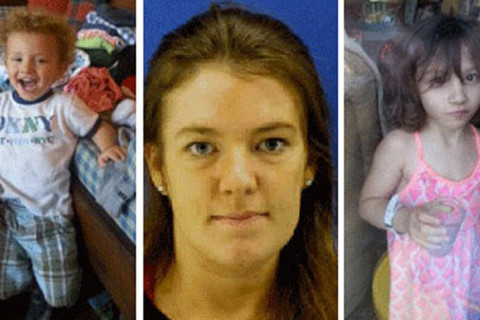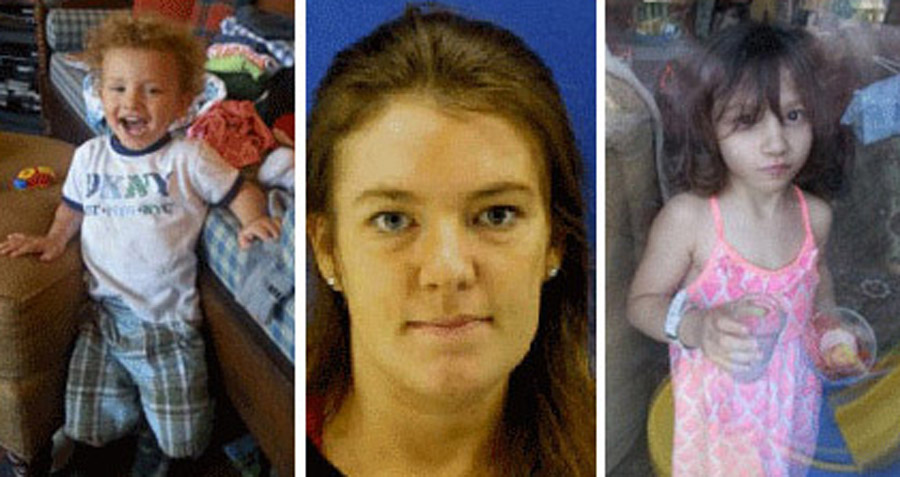
In a brief filed with Maryland’s second-highest court, the Court of Special Appeals, Catherine Hoggle’s attorney said a Montgomery County judge erred in failing to dismiss murder charges levied after the disappearance of her two young children almost six years ago.
Defense attorney David Felsen said Maryland law dictates felony charges be dropped against any defendant found incompetent to stand trial for five years.
Hoggle, who was arrested in Sept. 2014, was the last person to see Sarah, 3, and Jacob, 2, alive. She was initially charged with three misdemeanors related to her missing kids, and then indicted in September 2017 on murder charges.
With a long history of mental health issues before her arrest, Hoggle was first found incompetent to stand trial by a District Court judge in Jan. 2015. Since then, Hoggle, who was diagnosed with paranoid schizophrenia, has been receiving treatment at Clifton T. Perkins Hospital, Maryland’s state psychiatric hospital.
After eight competency reviews — each finding her not competent to stand trial, unable to assist in her own defense and dangerous — as a three-year deadline to prosecute misdemeanors neared, Montgomery County prosecutors dropped the counts, and indicted Hoggle for her children’s murders, in September 2017.
On the five-year anniversary of Hoggle’s first incompetency filing, Felsen filed a motion saying her murder charges must be dismissed.
Montgomery County State’s Attorney John McCarthy and Assistant State’s Attorney Ryan Wechsler countered, saying the five-year clock started when Hoggle was indicted in 2017, and the deadline to dismiss charges wouldn’t occur until 2022.
In February 2020, Circuit Court Judge Robert Greenberg sided with prosecutors.
“There appears to be no prohibition on the state’s successive re-indictment of a defendant after an (incompetency) dismissal,” Greenberg wrote in his ruling.
After years of saying Hoggle could eventually assist in her own defense, and a week before Greenberg’s ruling, Dr. Danielle Robinson at Perkins opined Hoggle’s competency was not restorable.
While accepting Robinson’s assertion that Hoggle was still incompetent, Greenberg said he would defer ruling on her future restorability.
Felsen, in his just-filed motion, said incompetent criminal defendants are not allowed to be held indefinitely.
“If there is no significant probability that a defendant held under an IST (Incompetent to Stand Trial) statute will be restored to competency, the purpose of the statute is no longer to restore competency, but rather to punish the defendant for a crime of which he/she has not been convicted,” Felsen wrote.
Felsen said while statutes allow a prosecutor to drop a misdemeanor and indict an incompetent person, they do not call for “resetting the clock.”
“Under the Circuit Court’s interpretation, the state could serially amend charges, or file new charges, in any case, to increase the IST detention by either three or five years with each amendment or superseding indictment,” said Felsen.
The office of Maryland Attorney General Brian Frosh will represent the state — effectively, Montgomery County’s Commonwealth’s Attorney’s position — in the appeals court arguments, which are scheduled for next February.









